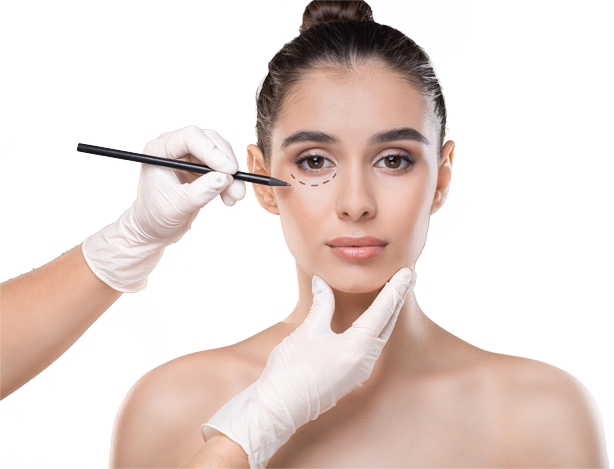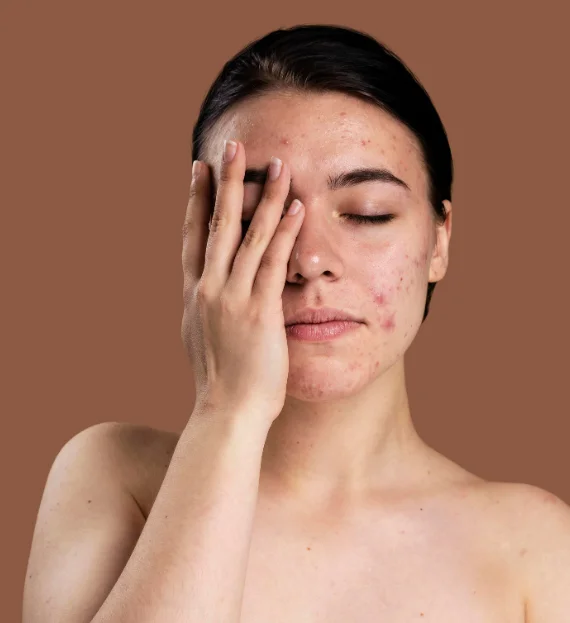Hyperpigmentation
Most Popular Procedures
Hyperpigmentation refers to the darkening of patches of skin, usually caused by an excess of melanin production. It can occur in people of all skin tones and can be caused by a variety of factors, including sun damage, hormonal changes, and certain medications.
Here are some tips on how to reduce hyperpigmentation:
- Wear sunscreen: Sun exposure is one of the leading causes of hyperpigmentation, so it’s important to protect your skin with a broad-spectrum sunscreen with an SPF of 30 or higher every day.
- Use topical treatments: Topical treatments such as hydroquinone, retinoids, and vitamin C can help to reduce the appearance of hyperpigmentation by inhibiting melanin production and promoting cell turnover.
- Consider professional treatments: Professional treatments such as chemical peels, microdermabrasion, and laser therapy can help to reduce hyperpigmentation by removing the outer layer of skin and stimulating collagen production.
- Use natural remedies: Some natural remedies such as aloe vera, lemon juice, and turmeric may help to reduce the appearance of hyperpigmentation. However, it’s important to note that these remedies may not work for everyone and may not be as effective as professional treatments.
- Be patient: Reducing hyperpigmentation takes time and consistency. Stick with a good skincare routine and be patient as you wait for results.
Remember, it’s important to consult with a licensed skincare professional to determine the best treatment plan for your specific concerns and skin type.
Faq
Frequently Asked Questions
A: Hyperpigmentation can be caused by a variety of factors, including sun damage, hormonal changes, certain medications, and skin injuries.
A: Hyperpigmentation can be permanent if left untreated, but its appearance can be significantly reduced with the right treatments and skincare routine.
A: Some natural remedies such as aloe vera, lemon juice, and turmeric may help to reduce the appearance of hyperpigmentation. However, it's important to note that these remedies may not work for everyone and may not be as effective as professional treatments.
A: Some professional treatments for reducing hyperpigmentation include chemical peels, microdermabrasion, and laser therapy. It's important to consult with a licensed skincare professional to determine which treatment is best for you.
A: Skincare products alone may not completely eliminate hyperpigmentation, but they can help to improve its appearance. Look for products that contain ingredients such as hydroquinone, retinoids, and vitamin C, which can help to inhibit melanin production and promote cell turnover.
A: Wearing sunscreen every day, avoiding prolonged sun exposure, and protecting your skin from injury can help to prevent hyperpigmentation.
A: Some hyperpigmentation reduction treatments may not be suitable for all skin types, particularly those with darker skin tones. It's important to consult with a licensed skincare professional to determine which treatment is best for your skin type and concerns.
A: The time it takes to see results from hyperpigmentation treatments varies depending on the severity of the hyperpigmentation and the treatment used. It can take several weeks to several months to see significant improvement.






